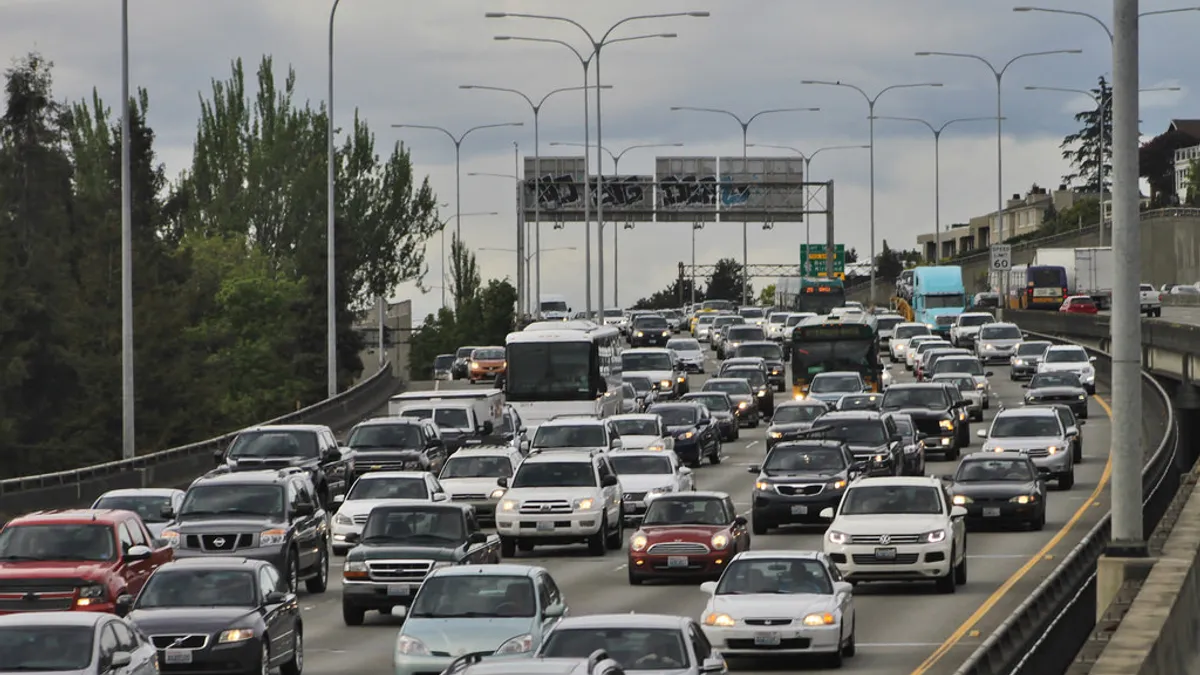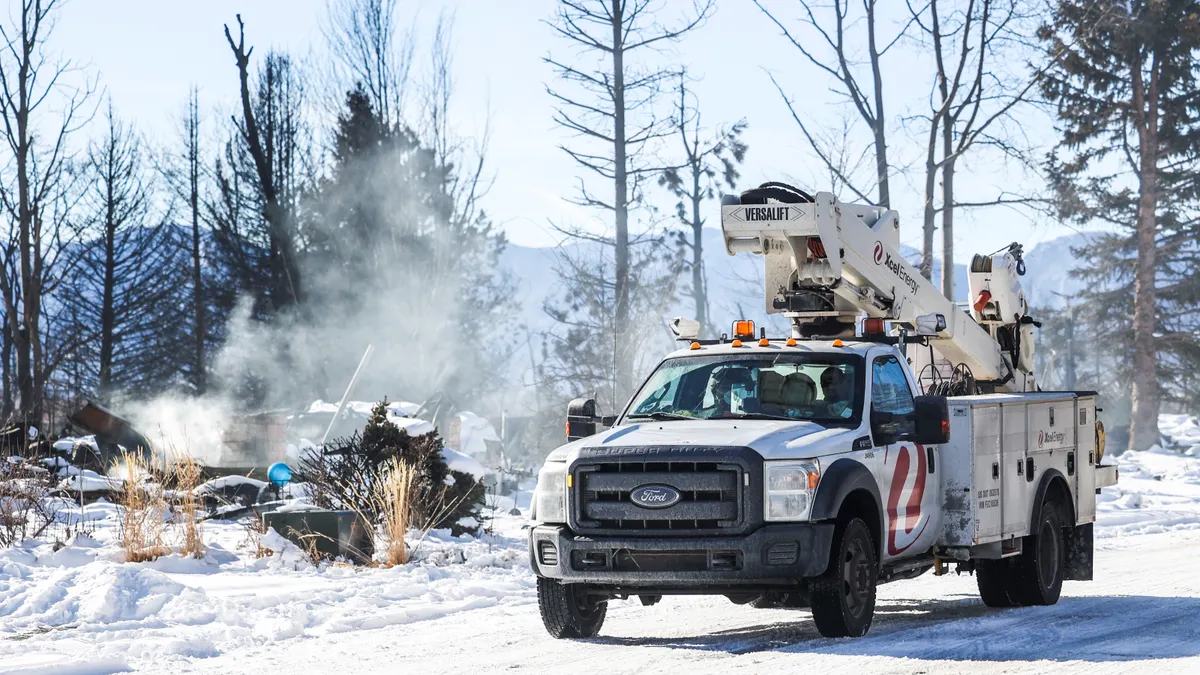The race to carbon neutrality in U.S. cities may run off the rails without systemic changes to greenhouse gas (GHG) emissions reporting, according to a new study that suggests U.S. cities are undercounting their emissions.
The study, published in the Nature Communications journal earlier this month, assessed the self-reported inventories of carbon dioxide in 48 cities, concluding that cities under-report emissions by an average of 18.3%. But as the media jumps to point fingers at cities, researchers and environmental advocates argue the blame shouldn't be placed locally.
The current state of emissions reporting
Cities are responsible for about 75% of the world’s carbon dioxide emissions, yet they struggle to accurately report emissions due to a lack of guidance and resources, said Kimberly Mueller, study co-author and scientist at the National Institute of Standards and Technology (NIST). She said inaccuracies are likely not due to any "nefarious" reporting, but recognized it can be an "onerous task."
To further prove such inaccuracies, the study cross-checked cities' emissions reports with atmospheric measurement data — and "the atmosphere doesn't lie," Mueller said.
"All of our activities that produce emissions end up in this large reservoir in the atmosphere so we can use measurements from the atmosphere to help 'truth check' the emission estimates that are provided by cities or other types of stakeholder organizations," she said.
Still, the discovery of widespread inconsistencies has troubling implications for local governments as they chip away at goals to achieve carbon neutrality, and as the Biden administration sets the stage for the U.S. to re-enter the Paris climate agreement.
Fixing a broken system
Looking ahead, emissions tracking could be taken out of the hands of cities as the costs are currently too prohibitive, according to Mueller.
A Brookings Institution report from October 2020, which assessed the local climate action plans, highlighted similar findings to the researchers in Nature Communications. Brookings voiced skepticism about the efficacy of relying on "city pledges" over national regulations for GHG emissions reduction.
The "emissions-pledge system" is well-intentioned, but ultimately broken, the Brookings researchers said.
Global standards have been established for tracking emissions, including a 2014 protocol developed with the the World Resource Institute, Local Governments for Sustainability (ICLEI) and C40. ICLEI also developed a U.S. standard for reporting GHG emissions in 2012 that has been downloaded more than 5,700 times as of January 2021, according to the group.
ICLEI rejected the Nature Communications study, arguing in a statement that cities are not vastly undercounting emissions. "City climate accounting standards are consistent methods that capture emissions most policy-relevant to local government," the statement reads.
But as the debate heats up, so does the urgency to reduce fossil fuel consumption. New research in the ScienceDirect journal found air pollution stemming from the burning of fossil fuels caused 8.7 million premature global deaths in 2018, or for one in five deaths that year. The new data is higher than previous estimates, according to the report.
To tackle fossil fuel consumption, President Joe Biden signed a number of executive during his first weeks in office that ended fossil fuel subsidies and suspended new oil and gas leases on public lands and more. Biden's new pick for the Environmental Protection Agency administrator, Michael Regan, has also promised to work alongside states and local communities to create economic opportunities that establish clean energy industries in the U.S.
The public sector is also making strides in taking the lead on offering Energy Efficiency-as-a-Service (EEaaS), a solution driven in part by strapped municipal budgets that have forced city leaders to get creative about financing capital improvements.
EEaaS allows businesses and governments to underwrite the up-front costs of energy efficiency upgrades, and pay for them via the savings from those upgrades over a long-term financial contract. The upgrades typically involve lighting or energy management, and are another response to the growing need for climate action and clean air.



















